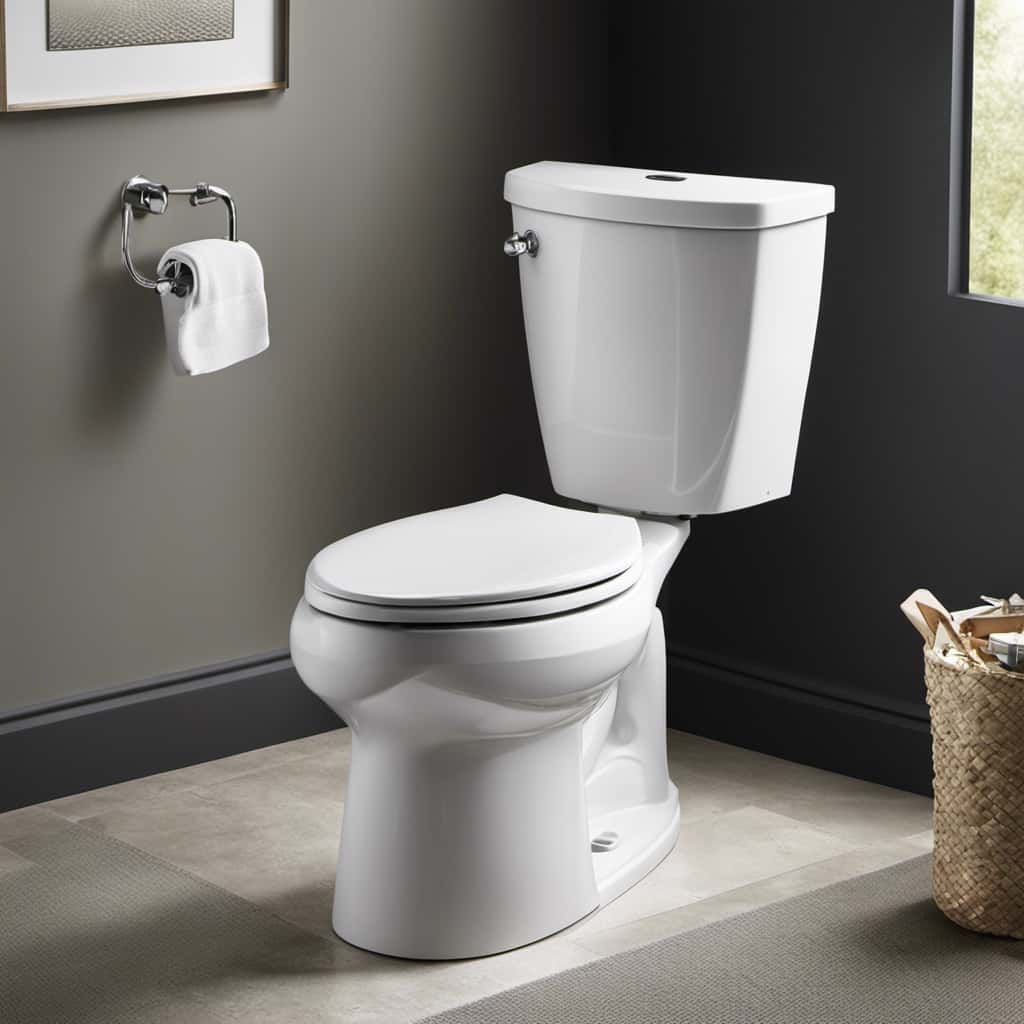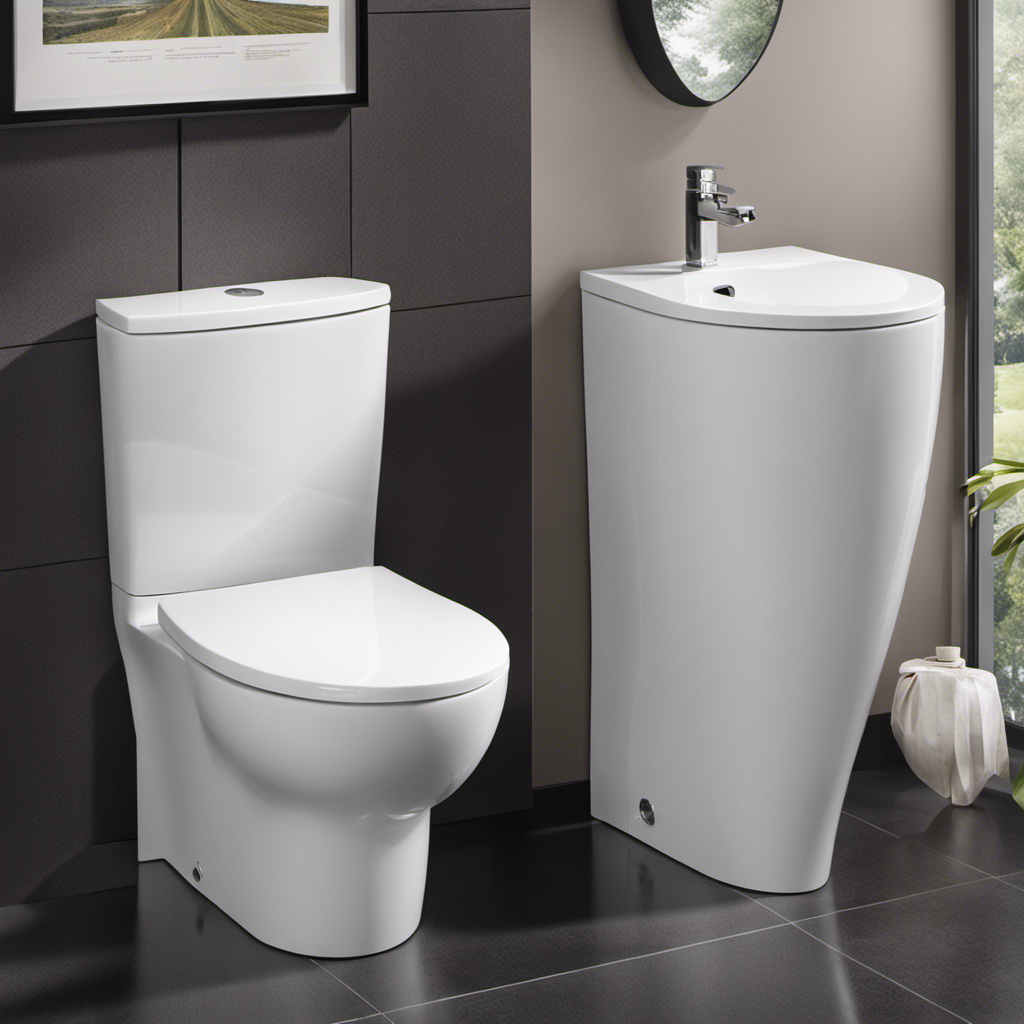We’ve all heard the saying ‘out of sight, out of mind.’ But when it comes to our septic tanks, what we can’t see can actually cause serious damage. That’s why it’s crucial for us to understand which chemicals should never make their way into our septic systems.
By following a few simple guidelines and avoiding certain household products, we can ensure the longevity and effectiveness of our septic tanks. So let’s dive into the world of septic tank maintenance and discover the chemicals we should steer clear of.
Key Takeaways
- Household cleaners and antibacterial soaps containing bleach, ammonia, triclosan, triclocarban, and other harsh chemicals should not be flushed down the toilet or poured down the drain as they disrupt bacterial balance in septic tanks and decrease their efficiency.
- Pesticides and herbicides used in gardens and lawns should be avoided near septic systems as they disrupt the natural balance of bacteria in the tank, inhibit waste decomposition, and can contaminate groundwater.
- Paints and solvents should be properly disposed of instead of being poured into the septic tank as they contain harmful chemicals that disrupt waste decomposition, decrease tank efficiency, and can cause clogging and blockages.
- Motor oil and grease should not be poured into the septic tank and should be disposed of following recommended methods to prevent septic system failure, clogs, and hindering of drainage system functioning.
Household Cleaners
Household cleaners can have a detrimental impact on the health of a septic tank. Specifically, products like toilet bowl cleaners and drain cleaners contain chemicals that can disrupt the delicate balance of bacteria in the tank.
These cleaners often contain ingredients such as bleach, ammonia, and other harsh chemicals that can kill the beneficial bacteria responsible for breaking down waste in the septic system. When these cleaners are flushed down the toilet or poured down the drain, they make their way into the septic tank and can kill off the necessary bacteria, leading to a decrease in the tank’s efficiency and potential issues with waste breakdown.
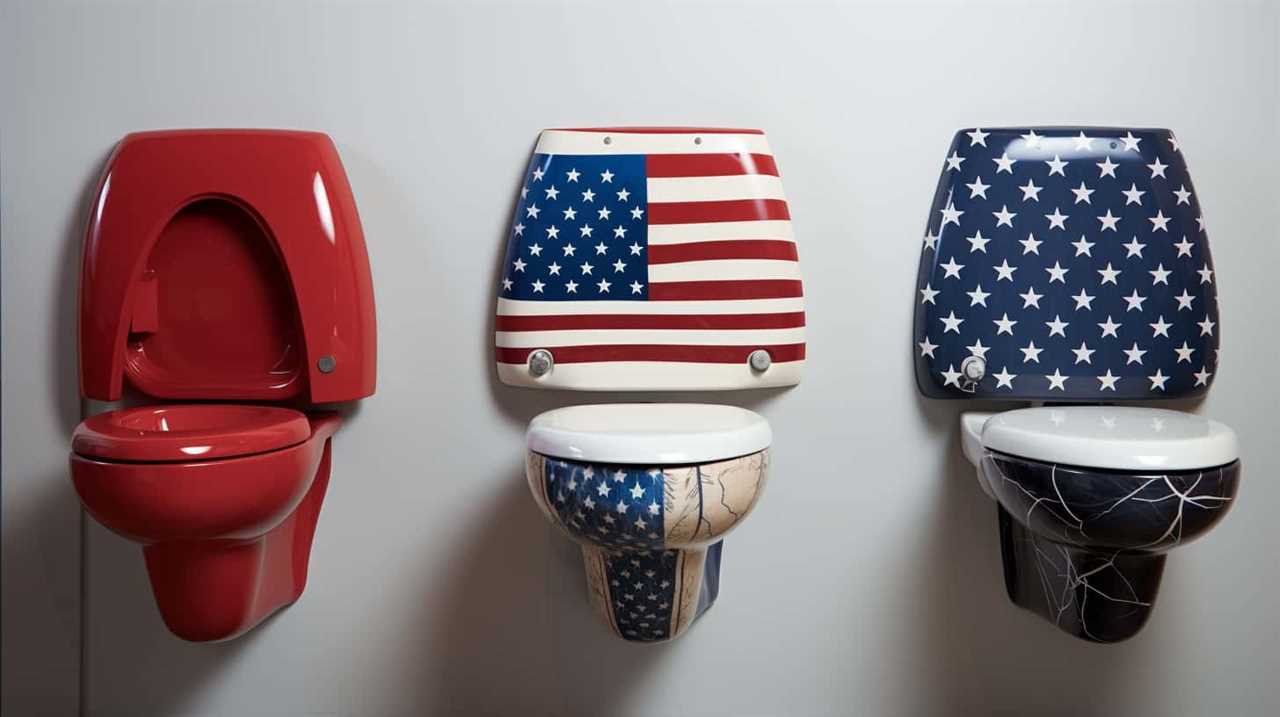
It’s crucial to avoid using these types of cleaners in order to maintain a healthy and functioning septic tank.
Antibacterial Soaps
When it comes to maintaining a healthy and functioning septic tank, it’s important to be mindful of the chemicals we introduce into the system, including antibacterial soaps. While these soaps are often marketed as effective in preventing the spread of germs, their impact on the environment, particularly aquatic ecosystems, is a cause for concern.
Antibacterial soaps typically contain chemicals such as triclosan and triclocarban, which have been found to persist in water bodies and have harmful effects on aquatic organisms. Studies have shown that these chemicals can disrupt the growth and development of algae, fish, and other aquatic life. Therefore, it’s crucial to consider alternative options for hand hygiene that are both effective in preventing the spread of germs and have a lower environmental impact.
Moving on to the next topic, let’s explore the effects of pesticides and herbicides on septic tanks.
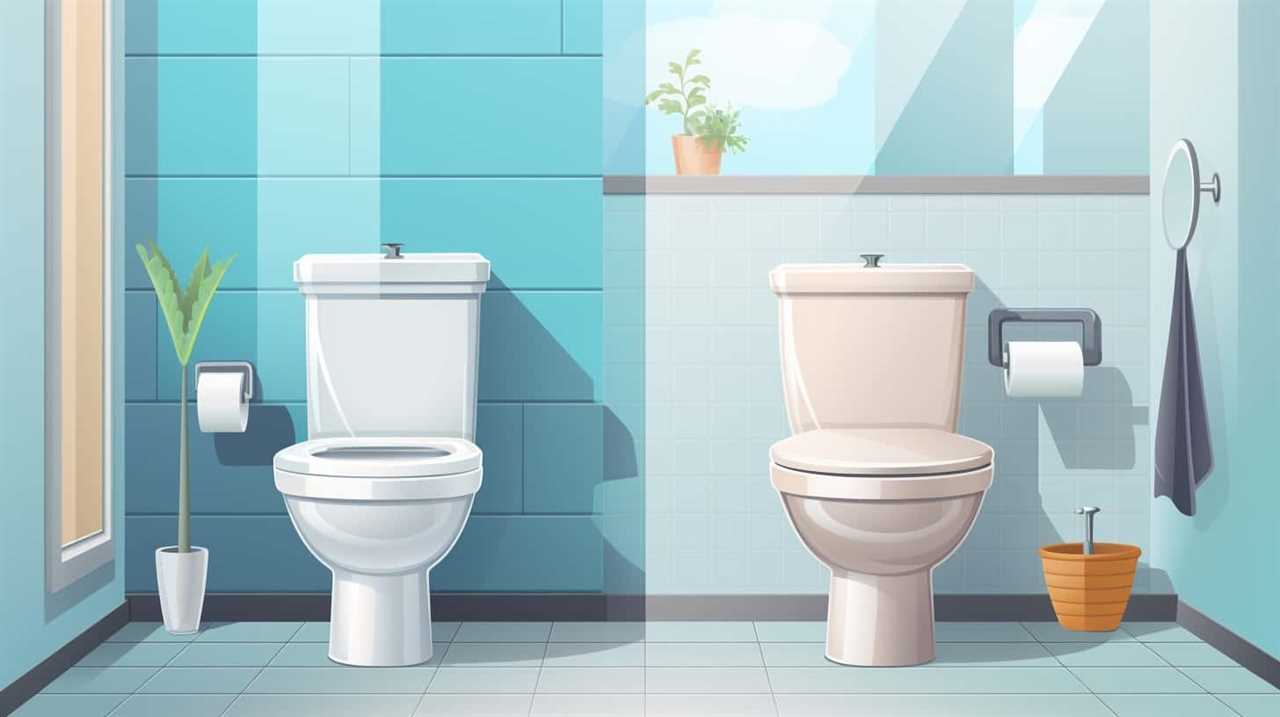
Pesticides and Herbicides
To continue our discussion on chemicals to avoid in a septic tank, let’s explore the impact of pesticides and herbicides on its overall health and functionality.
Pesticides and herbicides are commonly used to control pests and weeds in gardens and lawns. However, when these chemicals are flushed into a septic tank, they can have a detrimental effect on the environment and the tank itself.
Pesticides and herbicides contain toxic substances that can disrupt the natural balance of bacteria in the septic tank, inhibiting the decomposition of waste. Moreover, these chemicals can seep into the soil and contaminate groundwater, posing a threat to human and animal health.
It’s important to avoid using pesticides and herbicides near septic systems and opt for safe alternatives, such as organic pest control methods or mechanical weed removal. By doing so, we can protect the environment and ensure the proper functioning of our septic tanks.
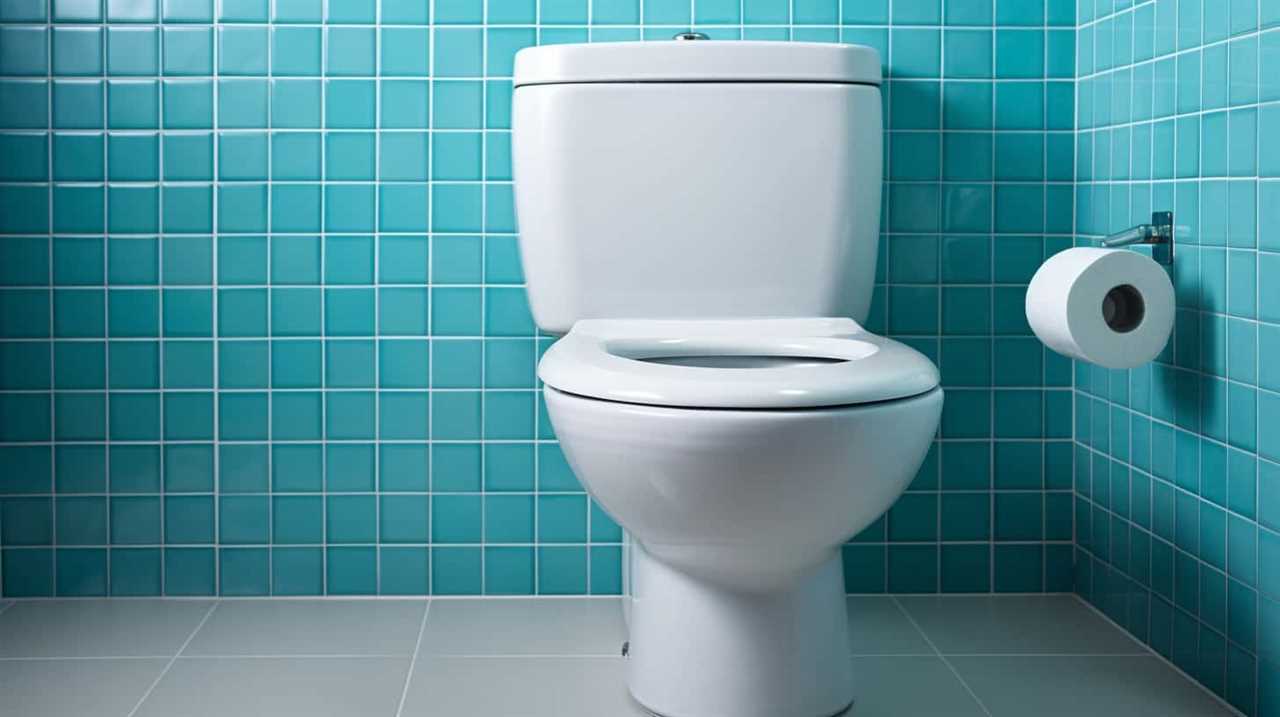
Now, let’s move on to the next section where we’ll discuss the impact of paints and solvents on septic tank health.
Paints and Solvents
Continuing our exploration of chemicals to avoid in a septic tank, let’s now delve into the impact of paints and solvents, as they can significantly affect the tank’s health and functionality. Paints and solvents contain substances that can be harmful to the delicate balance of bacteria in the septic system, leading to potential problems and costly repairs.
Here are three reasons why you should avoid putting paints and solvents in your septic tank:
- Chemical Interference: Paints and solvents often contain harmful chemicals, such as paint thinner and varnish remover, that can disrupt the natural decomposition process of waste in the tank. These chemicals can kill the beneficial bacteria responsible for breaking down solid waste, leading to a buildup of sludge and a decrease in the tank’s overall efficiency.
- Clogging and Blockage: Paints and solvents can also contribute to clogging and blockages within the septic system. When these substances enter the tank, they can settle at the bottom and form a thick layer of sludge that can clog pipes and hinder the flow of wastewater. This can result in backups, odors, and even septic system failure.
- Environmental Impact: Disposing of paints and solvents in a septic tank can have harmful effects on the environment. These chemicals can leach into the soil and contaminate groundwater, posing a risk to nearby wells and potentially causing harm to plants, animals, and humans.
To maintain a healthy and functional septic tank, it’s crucial to avoid introducing paints and solvents into the system. Proper disposal methods should be followed to ensure the protection of both your septic system and the environment.

Motor Oil and Grease
Now let’s address the impact of motor oil and grease on a septic tank’s health and functionality.
Proper motor oil disposal and grease trap maintenance are crucial to maintaining the optimal performance of a septic system. Motor oil, when improperly disposed of, can contaminate the groundwater and soil, posing significant environmental risks.
In addition, if motor oil enters the septic tank, it can disrupt the natural breakdown of solids and hinder the overall efficiency of the system.
Grease, on the other hand, can solidify and accumulate in the septic tank, leading to clogs and blockages in the drainage pipes. Regular maintenance of grease traps, such as regular cleaning and pumping, is essential to prevent these issues and ensure the proper functioning of the septic tank.

Frequently Asked Questions
Can I Use Bleach or Ammonia-Based Cleaners in My Septic Tank?
Using bleach or ammonia-based cleaners in a septic tank is not recommended. These chemicals can harm the beneficial bacteria that break down waste, leading to septic tank issues. It’s best to use bleach alternatives for septic tank maintenance.
Are Antibacterial Soaps Safe to Use With a Septic Tank System?
Antibacterial soaps may have negative effects on septic tank bacteria and can impact groundwater. It’s important to avoid using them to maintain the balance of bacteria in the septic tank system.
Can I Dispose of Leftover Pesticides and Herbicides in My Septic Tank?
When it comes to the disposal of expired medications and proper disposal of cooking oils, we must prioritize the health of our septic tank. The question arises: can we dispose of leftover pesticides and herbicides in our septic tank? Let’s explore the answer.
Is It Safe to Throw Away Old Paint and Solvents in My Septic Tank?
It is not safe to dispose of old paint and solvents in a septic tank. The potential risks include contamination of groundwater, damage to the septic system, and harm to the environment. Expired medications should also not be thrown away in a septic tank.
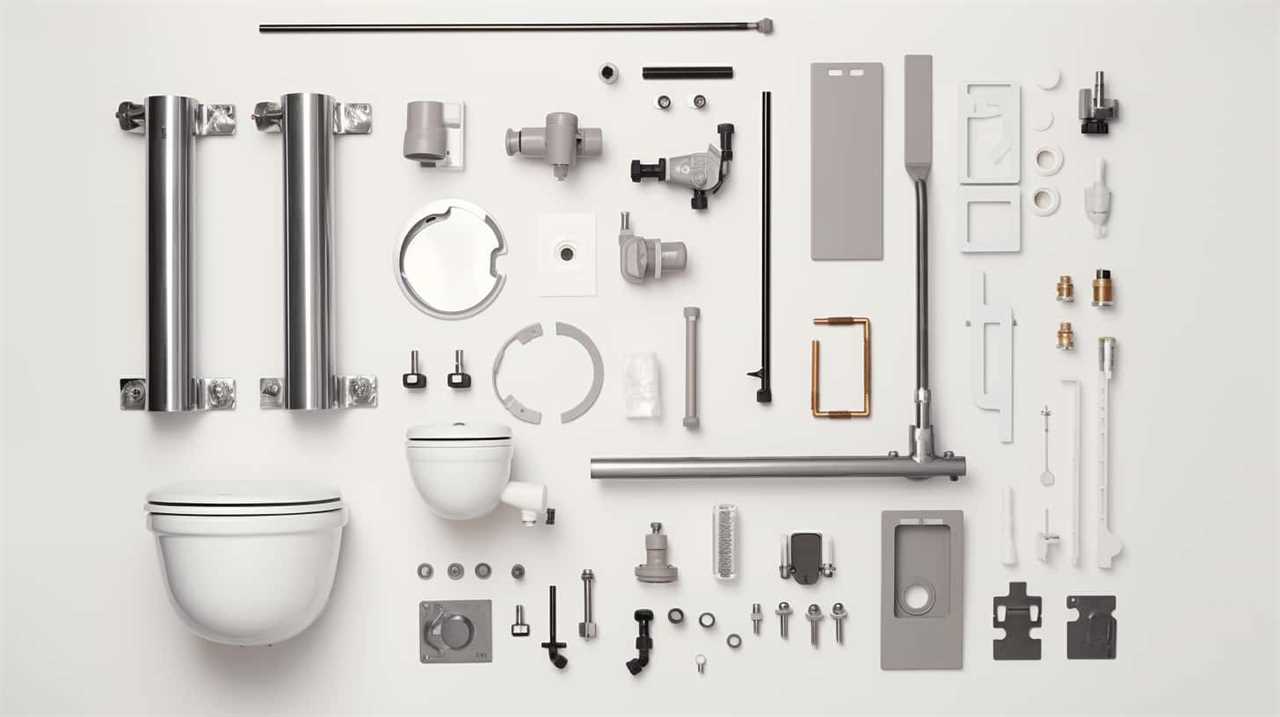
Can Motor Oil and Grease Be Disposed of in a Septic Tank Without Causing Any Harm?
Motor oil and grease should never be disposed of in a septic tank. These substances can clog the system, leading to costly repairs. Proper disposal methods include recycling motor oil and disposing of grease in the trash.
Conclusion
In conclusion, it’s crucial to be mindful of the chemicals we introduce into our septic tanks. Just like toxic substances can harm our environment, they can also damage the delicate balance of bacteria in the septic system.
The septic tank symbolizes the hidden ecosystem that diligently processes our waste. By avoiding household cleaners, antibacterial soaps, pesticides, paints, solvents, motor oil, and grease, we can preserve the harmony within this underground world and ensure the longevity of our septic systems.


